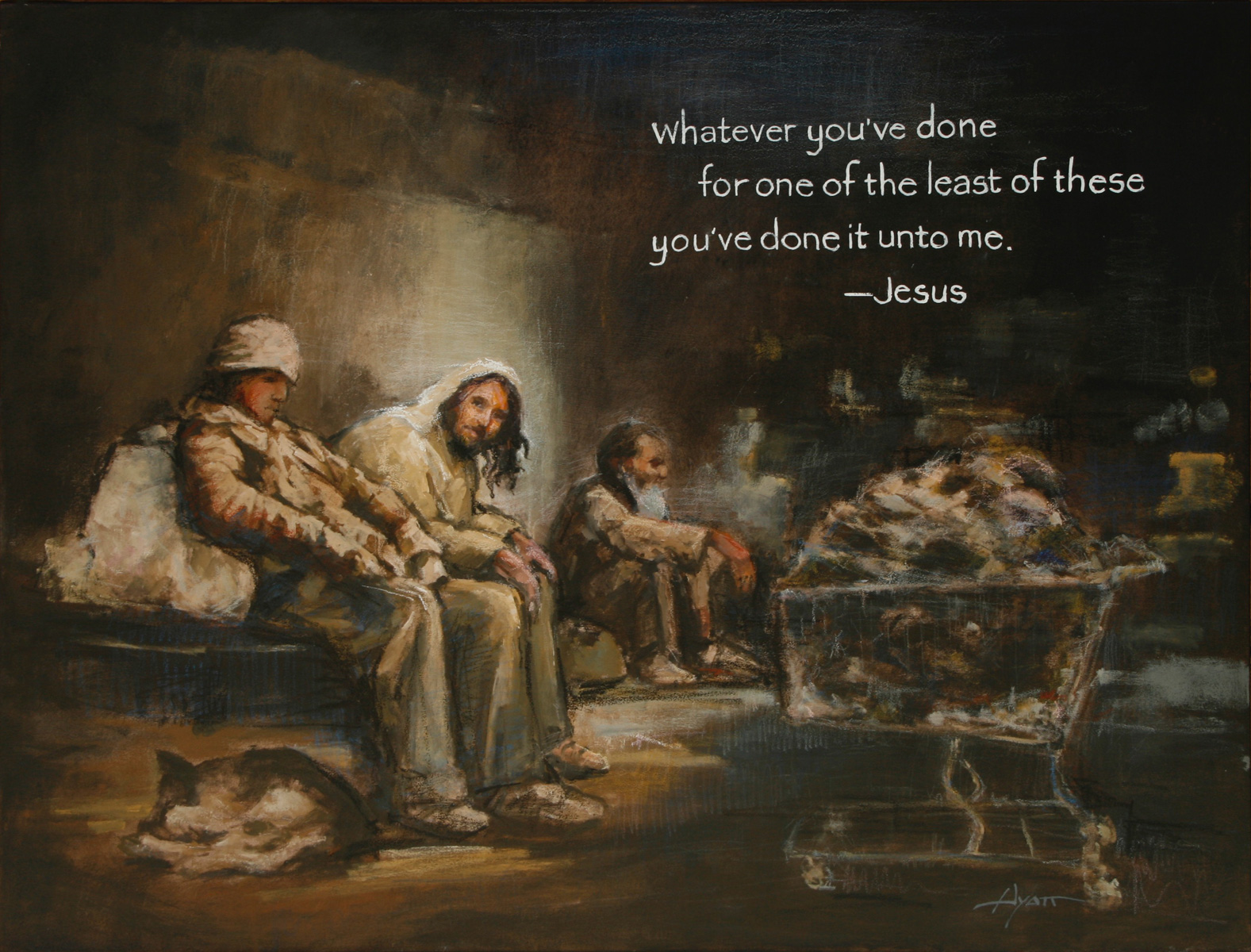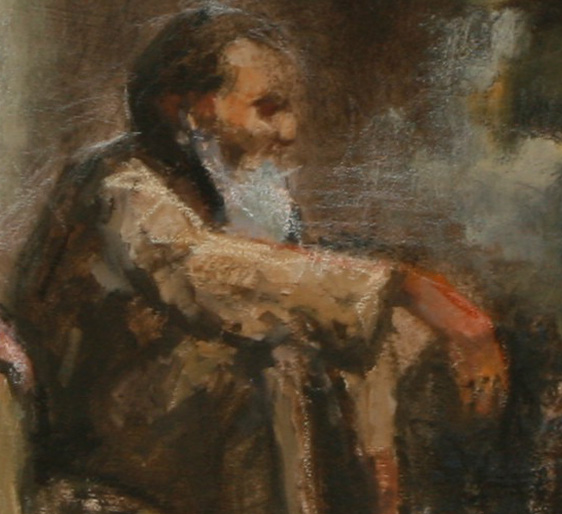Homeless JesusНамуна


Jesus talked about how it will be when the Son of Man comes in his glory, along with his angels, and takes his throne of judgement. He said it all in a matter-of-fact way. Who but him would or could talk this way, with utter confidence, unless he knew it was going to happen? Because of it, it's best if we believe it with the same knowing.
He went on to describe how all nations will be gathered to him—that's everybody, from all time and every place—to be divided, some on the left and rest on the right, like a shepherd, he said, dividing the sheep from goats. Then all will see that in the end we'll realize it really was black and white world, believers and non, nothing in between.
Jesus went on to say that the evidence of these distinctions was how they treated him during life. Did people feed him when he was hungry, he asked, or give him something to drink when he needed it? Or how about hospitality when he needed it, or visiting him in prison?

These might seem strange questions and he predicted we'd ask it. Like, “When were you in prison and all these other things?” He'll answer, “It was when you helped, or didn't, the people I call my brothers, even the least of them.”
It's then, if not before, we'll realize that's what he was watching for all along.
Puritan Bible commentator Matthew Henry calls it “a most sublime description of judgment day.” It's because the judgement is more of a doling out of rewards, and that for good things we hardly knew we had been doing. That is, if we'd been doing them.
We'll see then, like never before, that life and the world was indeed going somewhere. It was all heading for this, the final judgement of God, with blessing or cursing at the end, received according to how we'd lived and, by faith, what we'd done.
We'll ask, with good reason, “Did we really do very much, or anything at all?” We only did what seemed right. If we freely gave it was because we had freely received. Large or small, they were acts of faith, faith in the One we should be happy to do anything for, for anybody, as he did everything for us.
Scripture
About this Plan

"Whatever you've done for one of the least of these, you've done it unto me." It was as if God was in disguise, walking among us, yet not having even the normal comforts—like a regular place to sleep. But it's the way it was; he came for everybody, and he identified with everybody—even the homeless.
More
Нақшаҳои марбут ба мавзӯъ

SU Scotland Reading Plan Year One

Miracles Happen

Hanukkah: A Celebration of Light

This Is the Way: A 30-Day Journey Through the Book of Acts

Acts 7:20-53 | Obstinate or Obedient?

Touching Heaven, Changing Earth

4 Prayers for Foster Parents

Legacy of Faith- Hebrews 11

Wrapped in Christ: Claiming Gospel Freedom
